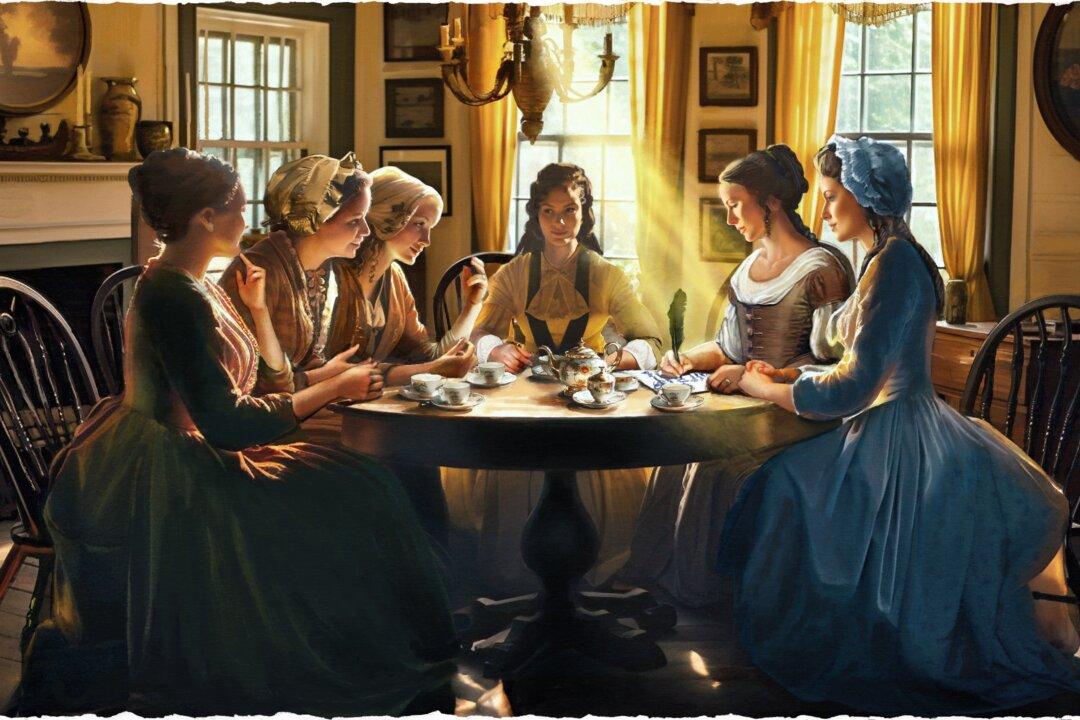The idiom “tempest in a teapot” means making a big deal out of some trifling problem or event. On October 25, 1774, in Edenton, North Carolina, 51 women turned that definition on its head. From their teapots came a storm that helped create the United States.
Under the leadership of Penelope Pagett Barker (1728–1796), and inspired by the Boston Tea Party the previous December, the Edenton women met at the home of Elizabeth King, where they signed a document formally protesting Britain’s taxation without representation. They pledged “not to drink any more tea, nor wear any more British cloth.” They further declared that they “have determined to give a memorable proof of their patriotism, and have accordingly entered into the following honourable and spirited association.”






